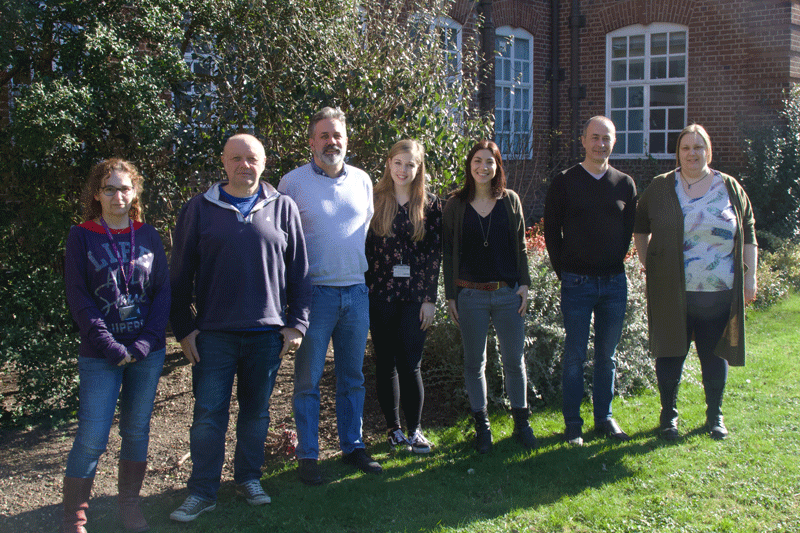About CGS
Cambridge Genomic Services (CGS) is a sustainable self-funded core facility offering state of the art genomics and sequencing technologies with computational biology and bioinformatics support. It was initially established in 2004 to provide the academic researchers within the Department of Pathology access to the highest-quality microarray resources available. This was initiated by Professor Nabeel Affara and his research group and the new academic lead is Dr. Anton Enright working with his research group.
History
Professor Affara had had a longstanding interest in the mapping and sequencing of the mammalian sex chromosomes and established a substantial array production facility in purpose-built, environmentally-controlled laboratories. This culminated in the development of several oligounucleotide and cDNA array resources for human, mouse and pig for the investigation of germ cell differentiation and mouse models of male infertility. Furthermore, array Comparative Genomic Hybridisation (aCGH) resources were developed for the investigation of copy number variation. Since its conception CGS supported the production of more than 30 different microarrays, providing resources for a range of organisms including humans, mice, farm animals, plants, parasites and protozoa. As a consequence, the facility benefits from a wealth of experience and expertise in genomics research and microarray-based technology.
In 2007 to meet current and future demands for next-generation sequencing and microarray genomics, the facility established an automated Illumina BeadStation platform to perform transcriptional profiling, SNP genotyping and methylation, available to all academics and private sector. Through our high-quality service you not only have access to the latest technology but also our experience and expertise in microarray design, experimentation, manufacture, quality control and analysis. We have processed thousands and thousands of samples, from small to large research projects and are experienced with all Ilumina products and assays. Moreover, we are an Illumina certified service provider for both Gene Expression and Genotyping. We have set up a high throughput genotyping pipeline with 2 TECANs, 2 iScans and autoloader making us the second genetic core facility in the UK with the highest capacity. We have processed large GWAS and EWAS studies of several thousands over the years. Our largest so far has been 70,000 samples.
We expanded our services in 2013 and implemented the Affymetrix platform to offer alternative solutions for gene expression and genotyping and introduced next-generation sequencing services in 2012. We are fully operating our Miseq and NextSeq instruments with access to HiSeq 4000 for even higher-throughput experiments and have experience with many applications including RNA-Seq, whole-genome, exome, chip-seq, methyl-seq, amplicon and 16S microbiome analysis.
Future Directions
Dr. Enright's arrival as new academic lead has brought further expertise in non-coding and small RNA sequencing and analysis as well as further cutting edge bioinformatics and computational biology. His group are brining Oxford Nanopore expertise to the facility as well as single-cell analysis on devices such as 10x Chromium.
How we work
To ensure sustainable access to its resources, CGS operates a cost-recovery system on all of its products and services. This is reflected in our reasonable prices which represent the real cost to the facility for instrumentation, software, reagents, staff and technologies involved. Our prices are uniform for all academic research laboratories.
We offer a customised service for each of our users and all projects are different. Our team are here to support you throughout your experiment.
The team in Feb 2019.


